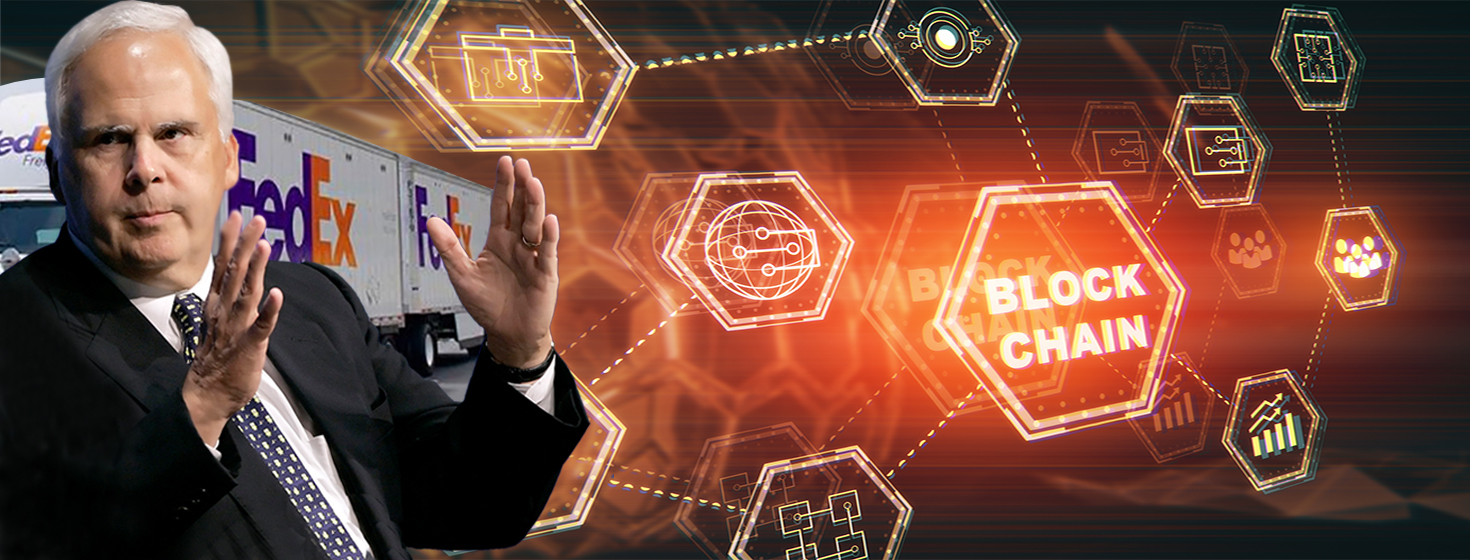Convinced that blockchain is on the brink of transforming the package-delivery business, FedEx Corp. is testing the technology to track large, higher-value cargo.
“We’re quite confident that it has big, big implications in the global supply chain, transportation, and logistics business,” FedEx Chairman and Chief Executive Officer Fred Smith said at CoinDesk's Consensus 2018 in New York.
“It’s the next frontier that’s going to completely change worldwide supply chains.”
Smith explained that one major issue that the logistics and transportation industry has faced is the “massive amount of friction” in cross-border logistics since different countries have different standards, regulations, and terminologies.
“For cross-border shipments, 'trust' is a legal requirement for every transaction. What blockchain has is a potential for the first time ever to make the information available for everybody.”
FedEx’s interest in blockchain and the Internet of Things are part of the company’s strategy to improve customer service and fend off competition, Smith said.
FedEx is working with an organization called the Blockchain in Transport Alliance that is attempting to set industry standards for using the technology in transportation.
Blockchain has the potential to lower transaction costs, speed up processes and free up working capital, according to the alliance.
FedEx also launched a pilot program to establish what data would be needed for a distributed ledger to ease disputes between customers sending and receiving goods through FedEx.
The shipping giant also wants to use blockchain to store its records.
The company is also experimenting with a small Bluetooth-based, low-energy tracking sensor called Tron, Chief Information Officer Robert Carter said at the conference.
FedEx has taken out more patents on Tron than any other technology in the company’s history.
FedEx is also part of a team announced on May 9 that will test small drone flights at the Memphis International Airport.
Speaking on the importance of moving with the times as a company, Smith concluded:
“If you are not operating at the edge of new technologies, you will surely be disrupted. If you are not willing to embrace new technologies like the internet of things and blockchain to face those new threats, you are, maybe subtly, at some point ... going to extinction.”
Related Article: Why Every Company Will Be Using Blockchain By 2027
Related White Paper
Bridge to Blockchain: A Platform for Orchestrating Multi-Enterprise Networks New!
In this white paper, you will learn why blockchain platforms vary widely in terms capability, disclosure, confidentiality, anonymity, the cost to use, and speed, and why companies need to leverage more than one blockchain network to realize game-changing business models. Download Now!
More Resources on Blockchain
Article topics
Email Sign Up



















